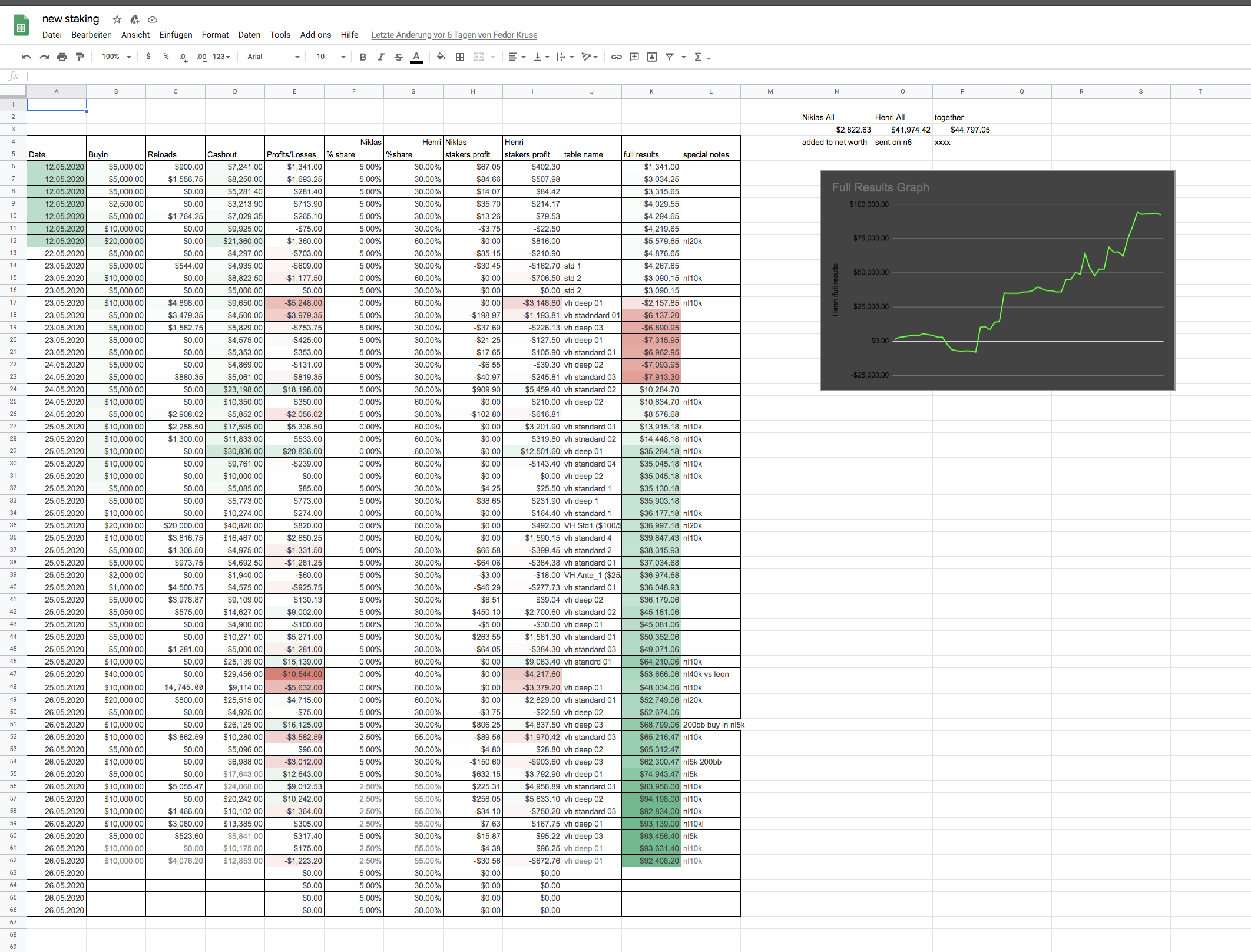German Fedor Kruse has been accused by his two flatmates of using a solver known as a 'dream machine' in the cash game high stakes and moving from an ordinary player at the lower limits to a genius. On Sunday, a new poker scandal blew up on the Two Plus Two forums. This time, the controversy surrounds the use of real-time solvers by high stakes poker pro and former Call of Duty streamer Fedor Kruse.
✎ About Fedor Kruse
2020 Cash High Stakes Poker
Fedor Kruse is a member of YouTube Star
Does Fedor Kruse Dead or Alive?
As per our current Database, Fedor Kruse is still alive (as per Wikipedia, Last update: May 10, 2020).
🎂 Fedor Kruse - Age, Bio, Faces and Birthday

Currently, Fedor Kruse is 23 years, 9 months and 23 days old. Fedor Kruse will celebrate 24rd birthday on a Saturday 17th of April 2021. Below we countdown to Fedor Kruse upcoming birthday.
| Popular As | Fedor Kruse |
| Occupation | YouTube Star |
| Age | 23 years old |
| Zodiac Sign | Aries |
| Born | April 17, 1997 (Germany) |
| Birthday | April 17 |
| Town/City | Germany |
| Nationality | Germany |
🌙 Zodiac
Fedor Kruse’s zodiac sign is Aries. According to astrologers, the presence of Aries always marks the beginning of something energetic and turbulent. They are continuously looking for dynamic, speed and competition, always being the first in everything - from work to social gatherings. Thanks to its ruling planet Mars and the fact it belongs to the element of Fire (just like Leo and Sagittarius), Aries is one of the most active zodiac signs. It is in their nature to take action, sometimes before they think about it well.
🌙 Chinese Zodiac Signs
Fedor Kruse was born in the Year of the Ox. Another of the powerful Chinese Zodiac signs, the Ox is steadfast, solid, a goal-oriented leader, detail-oriented, hard-working, stubborn, serious and introverted but can feel lonely and insecure. Takes comfort in friends and family and is a reliable, protective and strong companion. Compatible with Snake or Rooster.
About
German YouTube personality who is widely known for his iLoveCookiiezz channel's content. He has gained popularity there for his lively gaming commentary layered over his playthroughs and montages most prominently for first-person shooter games.
Before Fame
He began his YouTube channel on October 24, 2011.
Trivia
He has amassed more than 430,000 subscribers to his YouTube channel. One of his most popular videos there, 'CONNOR ZOCKT COD #3,' has earned more than 1 million views.
Fedor Kruse Two Plus Two
Family Life
He was born and raised in Poland.
Associated With
He and ViscaBarca are both German gamers known for their lively gaming commentary coupled with playthrough footage.
Fedor Kruse trend
Fedor Kruse fans also viewed:
YouTube Star
YouTube Star
YouTube Star
YouTube Star
YouTube Star
YouTube Star
YouTube Star
YouTube Star
YouTube Star
YouTube Star
Fedor Krause (10 March 1857 &ndash in Friedland in Niederschlesien; 20 September 1937 in Bad Gastein) was a German neurosurgeon who was native of Friedland (Lower Silesia).
Biography[edit]
He originally studied music at the Conservatoire in Berlin, and later switched to medicine, earning his doctorate at Humboldt University in Berlin. In 1883 be became a medical assistant to Richard von Volkmann (1830-1889) at the surgical university clinic at Halle. Afterwards, he was a pathologist at the Senckenberg Institute in Frankfurt am Main (1890-92), a surgeon at the city hospital at Hamburg-Altona (1892-1900), and later head of the surgical department at Augusta Hospital in Berlin. In 1901 he became an associate professor at the University of Berlin. While in Berlin, he worked closely with neurologistHermann Oppenheim (1858-1919) and he lived on island Schwanenwerder.
During World War I he served as a surgical consultant, and following the war embarked on scientific journeys to Latin America, where he introduced neurosurgical practices into several countries. In 1931 Krause retired from medicine, devoting his last years to artistic and musical pursuits in Rome.
Contributions in surgery[edit]
Krause was a pioneer in the field in of neurosurgery, and with Otfrid Foerster (1873-1941) was responsible for introducing surgical operations for treatment of epilepsy into Germany. During his career he performed over 400 operations on epileptic patients. He is also remembered for his work in plastic and reconstructive surgery, and was an early practitioner of intraoperative electrostimulation of the cerebral cortex.
He developed a number of operative techniques involving tumors of the brain and spinal cord. The eponymous Hartley-Krause operation is named after Krause and surgeon Frank Hartley (1857-1913). This procedure involves an excision of the Gasserian ganglion and its roots to relieve trigeminal neuralgia.
Today the German Neurosurgical Society awards the 'Fedor Krause Medal' for outstanding work in the field of neurosurgery.
Written works[edit]
- Über die Verwendung großer ungestielter Hautlappen zu plastischen Zwecken, (Concerning the use of large sessile skin flaps for plastic surgery), 1896.
- Chirurgie des Gehirns und Rückenmarks (Surgery of the brain and spinal cord), two volumes 1907 (later translated into English and French).
- Chirurgische Operationslehre des Kopfes (Surgical lessons involving the head), 2 volumes, Berlin 1912 and 1914.
- Die allgemeine Chirurgie der Gehirnkrankheiten (General surgery of brain diseases), with K. Heymann, 2 volumes, Berlin 1914.
- Die Tuberkulose der Knochen und Gelenke (Tuberculosis of the bones and joints), 1891 (later translated into English).
- Lehrbuch der chirurgischen Operationen (Textbook of surgery), Berlin 1912–1914 (later translated into Russian, English and Spanish).
References[edit]
- Archiv der Leopoldina (Catalogus professorum) MM 3804 Krause;
- NDB Band 12, S. 700.
- C. M. Behrend: Fedor Krause und die Neurochirurgie. Zbl. Neurochir. (1938) 3/2. Leipzig, S. 53-135,
External links[edit]
- catalogus-professorum-halensis translated entry in Catalogus professorum of the Leopoldina
- [1] Epilepsy surgery by Hans Lüders and Youssef G. Comair